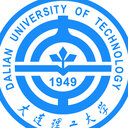Harpagoside ameliorates the amyloid-β-induced cognitive impairment in rats via up-regulating BDNF expression and MAPK/PI3K pathways.
Ключови думи
Резюме
So far, no effective disease-modifying therapies for Alzheimer's disease (AD) aiming at protecting or reversing neurodegeneration of the disease have been established yet. The present work aims to elucidate the effect of Harpagoside (abbreviated HAR), an iridoid glycosides purified from the Chinese medicinal herb Scrophularia ningpoensis, on neurodegeneration induced by β-amyloid peptide (Aβ) and the underlying molecular mechanism. Here we show that HAR exerts neuroprotective effects against Aβ neurotoxicity. Rats injected aggregated Aβ₁₋₄₀ into the bilateral hippocampus displayed impaired spatial learning and memory ability in a Y-maze test and novel object recognition test, while HAR treatment ameliorated Aβ₁₋₄₀-induced behavioral deficits. Moreover, administration of HAR increased the expression levels of brain-derived neurotrophic factor (BDNF) and activated the extracellular-regulated protein kinase (ERK) and the phosphatidylinositol 3-kinase (PI3-kinase) pathways both in the cerebral cortex and hippocampus of the Aβ₁₋₄₀-insulted rat model. Furthermore, in cultured primary cortical neurons, Aβ₁₋₄₂ induced significant decrease of choline acetyltransferase (ChAT)-positive neuron number and neurite outgrowth length, both of which were dose dependently increased by HAR. In addition, HAR pretreatment also significantly attenuated the decrease of cell viability in Aβ₁₋₄₂-injured primary cortical neurons. Finally, when K252a, an inhibitor of Trk tyrosine kinases, and a BDNF neutralizing antibody were added to the culture medium 2 h prior to HAR addition, the protective effect of HAR on Aβ₁₋₄₂-induced neurodegeneration in the primary cortical neuron was almost inhibited. Taken together, HAR exerting neuroprotection effect and ameliorating learning and memory deficit appears to be associated, at least in part, with up-regulation of BDNF content as well as activating its downstream signaling pathways, e.g., MAPK/PI3K pathways. It raises the possibility that HAR has potential to be a therapeutic agent against AD.






